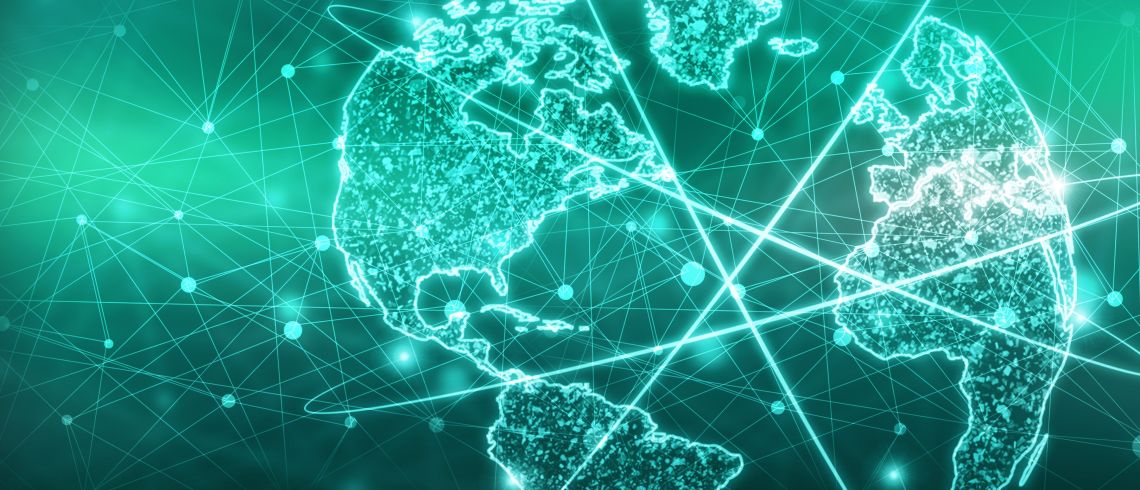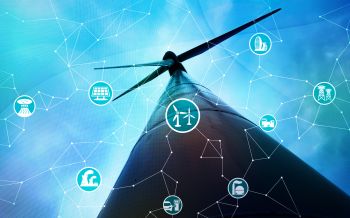Anne-Sophie Corbeau is a global research scholar at Columbia University’s Centre on Global Energy Policy. In this exclusive interview, she explains to Gas Matters why the US pause on approvals for new LNG export projects “is no cause for concern” and highlights how disruption at the Panama Canal and Red Sea could result in “intelligent solutions” for LNG trade. She also offers her thoughts on the impact this bumper election year could have on the energy transition and why carbon sequestration and hydrogen both are key on the path to net zero.
Based in Paris, Corbeau joined the Center on Global Energy Policy, where she leads research on natural gas and hydrogen, in September 2021. Her career began nearly 25 years ago.
“I started with fuel cells and hydrogen,” she recalls. “Funnily enough, I was ahead of my time, so I switched to natural gas.”
This is when she joined Cera, which later became IHS Cera and is now part of S&P Global, as a research associate, followed by roles at the International Energy Agency (IEA) and the King Abdullah Petroleum Studies and Research Center (Kapsarc), a Saudi energy thinktank. At Kapsarc, she helped kickstart their research on natural gas.
“Then I moved to BP, where as head of gas analysis I was in charge, among other things, of the Statistical Review of World Energy. I’m also a visiting professor at Sciences Po [The Paris Institute of Political Studies], where I teach energy security.”
White House pause
The interview with Corbeau takes place not long after the White House announced on 26 January that it was pausing approvals for pending and future LNG export projects in the US, a move that caused concern in many corners of the LNG business. But for her, the pause is no cause for concern.
“Some of the articles I’ve read [about the pause] give the impression that it’s ‘apocalypse now’ – that everything is stopped. But it’s not stopping the plants that are already being built. Look at what is currently under construction: Corpus Christi Stage 3, Plaquemines, Golden Pass. It’s a hell of lot of capacity. We are looking at a doubling of LNG exports by 2028. There’s no reason to worry.”
According to Corbeau, the expansion of US LNG exports has been “caught up” in the heightened discussion on climate action, framed “between those who feel that gas is fantastic and is going to displace coal, and those who say that gas is terrible because of the methane emissions.”
Representative of these “substantially diverging views,” she underscores, are separate claims made last year by Cornell University’s Dr Michael Howarth and former Environmental Protection Agency (EPA) official Jeremy Symons that LNG is “dirtier than coal” but also the statement by US gas producer EQT that US LNG is “the largest green initiative on the planet.”
READ ‘Consumers lose out with Biden’s LNG pause’: Vivek Chandra, Gulfstream LNG
“The truth us somewhere in the middle,” she says.
In her opinion, with plenty of new LNG capacity already under construction around the world, additional plants will have to have “the lowest emissions in terms of upstream, transport and liquefaction.”
She thinks the pause on new LNG permits in the US should in fact be seen as a positive development because it is the result of discussions being made, especially in LNG, about upstream emissions.
Gas prices may be much lower than they were two years ago but are still higher than the historical average.
“People in the US have understood that, inevitably, they need to do something about it and are already advancing and making progress in that regard,” she says. At the same time, more and more companies “are becoming aware of the need to be cleaner on the liquefaction side of things, either by using CCUS [carbon capture, utilisation and storage] or clean electricity.”
Sophisticated industry
Corbeau is equally sanguine over the impact ongoing disruption at the Panama Canal and Red Sea, caused by drought and Houthi attacks on commercial shipping respectively, could have on LNG trade and shipping in the long term.
“It was unexpected but we now have two new chokepoints in the LNG business,” she says. “This is making journeys for sellers, such as the US and Qatar, much longer. Βut as long as there’s enough LNG shipping capacity, it should be okay.”
The gas and LNG industry is sophisticated enough, she argues, to take action rather than resign itself to the fact that journey times will be longer.
READ Red Sea attacks: Crisis ‘non-issue’ for LNG so far but highlights chokepoint risks
“We know exactly where each ship is. Some very smart people, especially the portfolio players, are going to optimise their assets. If they can’t get their gas from the US to Asia, they’re going to get it from Qatar to go to Asia, and they’ll take US gas to Europe. Eventually, people are going to start talking to each other and find intelligent solutions in terms of swapping because they will see a business opportunity.”
Flexibility has been “a major trend” in the LNG industry, Corbeau stresses. “We have seen worse thing happening: Covid-19, Ukraine. Swapping is something that has already happened, although maybe more in terms of pipeline gas. But I think the LNG business will find a good solution to this problem.”
‘Always be cautious’
Europe’s healthy gas stocks during this winter are one reason why the Red Sea crisis has failed to tighten the outlook for LNG this year. Despite this, and the fact that “we have seen some import substitution,” Europe has no room for complacency, says Corbeau.
“I teach energy security, and what I say is: always be cautious. Things can happen. In recent years we’ve had an accumulation of factors, which individually would have made markets a little bit tighter, but put together have created a crisis that was already brewing before the invasion of Ukraine. Gas prices may be much lower now than they were two years ago but are still higher than the historical average.”
At the same time, Europe’s industrial demand for gas is “still really down,” helping suppress prices, while the signals for the economy of the continent’s top gas consumer, Germany, “are not great,” Corbeau notes.
“The IMF [International Monetary Fund] was looking at much higher economic growth for Germany in 2025, but it was in recession in 2023 and is not doing great. A lot of people in Germany are complaining about its energy policy.”
Elections year
Energy policy complaints are not unique to Germany and are driving electoral agendas this bumper election year, with voters heading to the polls in key economies, including the EU, US and the UK, in 2024.
In the US, Donald Trump returning to White House as president “would not, based on his previous mandate, necessarily be more positive for gas,” says Corbeau, “because the Biden administration has not exactly been negative” for the sector.
Trump “has already said he’ll overturn the Biden pause, and unlike other politicians, Trump has usually done what he has said he will do. But will that mean that LNG projects will take FID [final investment decision]? At the end of the day, it really depends on people marketing their gas.”
Pipeline gas imports and biomethane make predicting LNG demand in China complicated.
Even if Trump is re-elected president, some low-carbon solutions, such as CCUS, is set to benefit from bipartisan support, she believes.
“Biden is quite positive on CCUS, and I don’t think a Republican majority would undermine that if they think it’s good for business. Same thing for nuclear. What the Republicans don’t like are green energies like solar. These might be at risk.”
READ Trump’s energy stance is ‘drill, baby, drill’ – what about the other 2024 candidates?
A dislike for green policies is also becoming widespread in Europe, says Corbeau. “One common trend, although with some variation, among the different populist parties in Europe is that they really don’t like solar and wind. In many cases they want to stop construction and permissions. They don’t particularly like the Green Deal. In the Netherlands, they’re calling for a return to gas and coal.”
Corbeau does not anticipate a majority between the populists and conservatives in May’s European Parliament election. However, they could secure a strong enough minority “to swing some very important climate policy texts one way or another,” she says.
“And don’t forget that in Europe we have three entities, the Council, the Commission and the Parliament, and to move anything, you need all three to agree. We have no idea what direction the Council [which is made up of the heads of state or government of all EU countries] will land because, progressively over the mandate of the next Commission, there will also be elections in different member states. In the short term, we may have a Parliament which is blocking some texts, or maybe trying to undo some proposals.”
At the same time, “whether the populists are going to agree among themselves is another challenge,” she adds. “There are already some clashes between [France’s] Rassemblement National and [Germany’s] AfD, although, for sure, they are not in favour of everything that has been moved forward by the Commission in terms of energy.”
Chinese complexity
Beyond Europe, China’s future LNG demand is a key issue to watch, says Corbeau.
“Chinese LNG demand is coming back, but not to 2021 levels. It is probably one of the most uncertain and difficult markets for gas. Unlike before, I do not sense that the government wants to push natural gas demand up at any cost. The previous policy of switching from coal to gas in the residential and industrial sectors is a little bit less present. In terms of supply, the focus is always more on domestic gas production.”
China’s considerable potential for biomethane – Beijing targets over 20 Bcm of domestic production by 2030 – not to mention the growth of gas imports from Russia, are factors that make predicting LNG demand in China “complicated,” she notes.
READ China advances petroyuan ambitions in LNG in bid to chip away at USD dominance
“Power of Siberia 2 could really change everything. What we can say with certainty is that Chinese players have all been very active in terms of LNG contracting. This is making the forecast even more complicated because we have a lot of different players involved. Before, we were mostly looking at the three big guys. Now we have a flurry of relatively small, second-tier players, who from a Chinese perspective may not be particularly big, but from a gas demand perspective are actually pretty decent. ‘China’ is suddenly what all these different companies – CNOOC, Sinopek, CNPC, ENN, Wenzhou – want to do. In particular, whether they want to keep all this LNG for themselves or are actually building a portfolio whereby they are going to send it somewhere else. They are becoming more sophisticated. We don’t have a very clear view about that.”
Expanding import capacity to support growing LNG demand is more challenging than people say.
Corbeau does expect LNG demand to continue growing in other Asian countries, especially Pakistan, Bangladesh and Thailand, where domestic gas production is declining, but also brand new markets like Vietnam and the Philippines, “although it’s taken these two a long time to import LNG – I remember looking at them when I was still at the IEA 10 years ago,” she says.
While talking about growing LNG demand “is easy,” expanding import capacity, including floating storage and regasification units (FSRUs), to support this is “more challenging than people say,” she stresses. “For example, the Philippines was looking at importing LNG for 10 years, and it took Pakistan a long time to put their first FSRU in place. And there will be questioning from people on the financing side, who’ll question their financing of fossil fuels and potentially ask projects to have CCUS capabilities, which adds to the cost and puts pressure on new markets to have storage capabilities.”
Useful solutions
When it comes to CCUS, although its detractors see it as “an excuse for the oil and gas industry to actually continue as normal,” Corbeau believes that “if you absolutely want to go towards net zero, at some point you will need something negative, and something negative usually combines CCUS with some biogenic solution.”
But for CCUS to succeed, much depends on where a project is located in terms of its geology and how complicated it is, she points out.
“The US has been doing CCUS for quite a long time, and they even have CO2 pipelines. In Europe, CCUS was thought of as something terrible but is now starting to be seen as a realistic solution. It’s taking time, but it’s no longer something that is absolutely impossible, unthinkable or unwanted.”
Corbeau sees both CCUS and hydrogen as “useful solutions” for decarbonisation. “If you really want to decarbonise your whole energy system, at some point you will use hydrogen,” she says. “The problem is that, for a while, there was a lot of hype over hydrogen but people have now realised that it’s not that easy. Hydrogen has had a reality check and is moving from hype to reality.”
A real issue hydrogen now faces is the rise in electricity costs, especially from renewable generation, Corbeau says.
“Although some people think renewable hydrogen costs will drop back, it remains a problem. In the long term, I think hydrogen is going to be particularly useful for a certain number of sectors, which are going to be difficult to decarbonise,” she concludes. - KT
Subscription Benefits
Our three titles – LNG Business Review, Gas Matters and Gas Matters Today – tackle the biggest questions on global developments and major industry trends through a mixture of news, profiles and analysis.
LNG Business Review
LNG Business Review seeks to discover new truths about today’s LNG industry. It strives to widen market players’ scope of reference by actively engaging with events, offering new perspectives while challenging existing ones, and never shying away from being a platform for debate.
Gas Matters
Gas Matters digs deep into the stories of today, keeping the challenges of tomorrow in its sights. Weekly features and interviews, informed by unrivalled in-house expertise, offer a fresh perspective on events as well as thoughtful, intelligent analysis that dares to challenge the status quo.
Gas Matters Today
Gas Matters Today cuts through the bluster of online news and views to offer trustworthy, informed perspectives on major events shaping the gas and LNG industries. This daily news service provides unparalleled insight by drawing on the collective knowledge of in-house reporters, specialist contributors and extensive archive to go beyond the headlines, making it essential reading for gas industry professionals.






